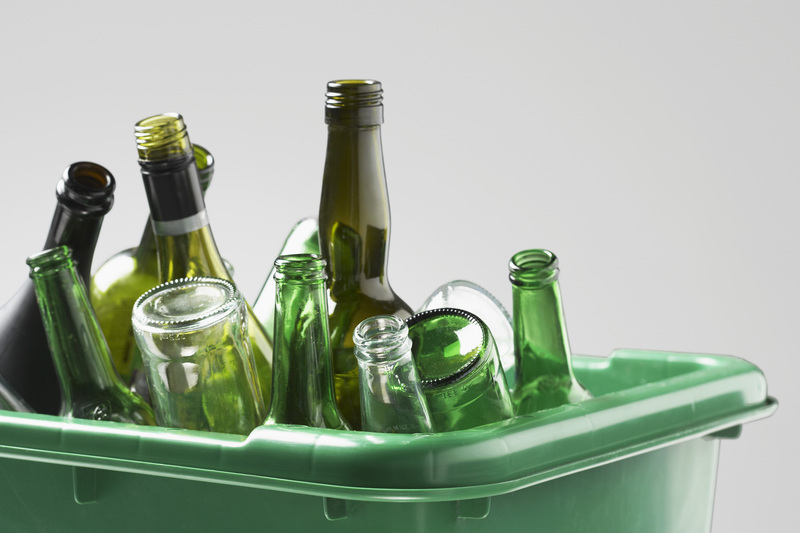Everything You Need to Know About Cookware Recycling
Cooking at home is a daily routine for many households, leading to the inevitable accumulation of old, damaged, or outdated pots, pans, and bakeware. But what do you do when your favorite nonstick pan loses its coating or your cookware collection outgrows your kitchen shelves? Cookware recycling is an eco-friendly solution that is gaining traction. In this comprehensive guide, we'll cover everything you need to know about cookware recycling, including why it's important, what items can be recycled, how to recycle them, and innovative ideas for repurposing old cookware.
Why Recycle Your Old Cookware?
Before tossing your worn-out frying pan in the trash, it's essential to understand the environmental benefits and necessity of recycling cookware. Millions of tons of metal end up in landfills each year, contributing to pollution and resource depletion. Recycling pots, pans, and bakeware helps conserve resources, reduce landfill waste, and minimizes your carbon footprint.
- Metal Conservation: Most cookware is made of precious metals like aluminum or stainless steel, both of which are highly recyclable.
- Landfill Reduction: Cookware takes decades to degrade; recycling prevents it from occupying landfill space.
- Energy Savings: Recycling metals uses significantly less energy than mining and processing new materials.
Eco-Friendly Kitchens Start with Smart Disposal
A sustainable kitchen begins with conscious decisions at every level, from the ingredients you buy to how you dispose of your kitchenware. By understanding how to recycle pots and pans, you play a vital role in fostering a greener planet.

What Types of Cookware Can Be Recycled?
If you're asking, "Can I recycle pots and pans?" you're not alone. The answer depends on the material and condition of your cookware.
Recyclable Cookware Materials
- Aluminum cookware: Most aluminum items, including pans, pots, and baking sheets, are recyclable. Remove non-metal parts like plastic handles or rubber grips before recycling.
- Stainless steel: Stainless steel is highly sought after by scrap metal recyclers owing to its durability and value.
- Copper: Copper-bottomed pans and pure copper kitchenware can usually be recycled through specialized facilities or scrap yards.
- Cast iron: Heavy and long-lasting cast iron pans can often be recycled as scrap metal when beyond repair.
Non-Recyclable or Difficult-to-Recycle Cookware
- Nonstick cookware: Traditional Teflon-coated pans are tricky due to the chemical coatings, though some programs will accept them if the coating is stripped.
- Ceramic, glass, and enameled cookware: These are typically not accepted by curbside recycling because they do not melt at the same rate as glass bottles or containers.
- Pots and pans with plastic parts: Remove as much plastic as possible; only the metal can usually be recycled.
If you're unsure, check with your local recycling center for guidelines specific to cookware recycling in your area.
How to Prepare Cookware for Recycling
Proper preparation is crucial to ensure that your old cookware is accepted and effectively processed by recycling facilities. Here are the steps:
- Clean thoroughly: Remove all food residues and grease as most recycling centers only accept clean materials.
- Remove non-metal components: Detach plastic, wood, or rubber handles whenever possible. Some centers might reject items with such attachments.
- Separate materials: If you have different types of metal cookware, keep them grouped for easier sorting at the facility.
For items with damage, heavy rust, or coatings, check the local center's policies. Some might only accept certain materials.
Where to Recycle Old Cookware
While not all curbside recycling programs accept cookware, there are many alternatives to ensure your items are recycled responsibly:
1. Scrap Metal Yards
Most scrap metal recyclers will take pots and pans, as long as they're primarily made of metal. You may even earn a few dollars for heavy items like cast iron.
2. Specialty Recycling Events
Keep an eye out for community recycling drives that accept unusual materials, like kitchenware, electronics, or appliances.
3. Manufacturer Take-Back Programs
Brands like Calphalon and select retailers sometimes offer take-back programs for old cookware, especially if you're buying a replacement. Check the company's website for updates.
4. Donation Centers and Thrift Stores
If the cookware is still functional, consider donating it to goodwill organizations, shelters, or thrift shops. Many accept gently used pots, pans, and bakeware.
5. Municipal Waste Facilities
Local waste disposal or public works centers often have dedicated sections for metal recycling, including cookware.
Creative Ways to Reuse and Repurpose Old Cookware
Recycling isn't your only option! Repurposing cookware can add quirky charm to your home or garden. Here are some creative ideas:
- Garden Planters: Old pots and pans make excellent planters for herbs, succulents, or flowers.
- Wall Art: Vintage or decorative cookware can be hung as unique kitchen wall decor.
- Organizers: Use muffin tins for small-item storage in craft rooms or garages.
- Bird Baths or Feeders: Large pans or mixing bowls can become rustic bird baths or feeders in your backyard.
- Chimes and Mobiles: Combine metal lids and utensils to craft wind chimes or mobiles.
With a little imagination, you can extend the life of your cookware and minimize waste--further reducing your environmental impact.
Common Questions About Cookware Recycling
Can I Put Pots and Pans in the Recycling Bin?
Most curbside programs do not accept cookware, especially those with coatings or plastic components. However, you can drop them off at scrap metal recycling facilities or designated municipal centers.
How Do Recycling Centers Process Old Cookware?
After collection, metal cookware recycling involves sorting materials (aluminum, iron, steel), shredding them, and melting them down to create new products. The process is highly efficient and preserves the quality of the metal.
Are Nonstick Pans Recyclable?
Traditional Teflon (PTFE) pans are a challenge because the coating is not recyclable. Some local centers accept them if the coating is removed; check with your recycler for rules. Modern ceramic nonstick pans might be accepted as scrap metal once handles and coatings are taken off.
Can Damaged or Heavily Rusted Cookware Be Recycled?
Yes. Most metal recycling facilities accept rusted cookware, as rust is removed during the melting process. However, ensure that as much non-metal material as possible is removed.
Best Tips for Sustainable Cookware Disposal
Want to ensure your efforts are as eco-friendly as possible? Follow these tips for responsible cookware recycling:
- Buy Quality, Not Quantity: Invest in durable, longer-lasting cookware that won't need frequent replacing.
- Maintain and Repair: Proper seasoning, cleaning, and occasional repairs can extend the life of your cookware.
- Donate, Don't Dump: If an item is still usable, donate it before considering recycling.
- Research Local Programs: Every area has different facilities--always check what's accepted before dropping items off.
- Separate Materials: Make the recycling process easier by grouping like metals and removing as many non-metal elements as possible.
The Environmental Impact of Cookware Waste
Throwing pots and pans in the garbage sends valuable metals to rot in landfills. This not only wastes resources but contributes to pollution and the emission of toxic gases from decomposing waste. Instead, recycling cookware recovers these metals, reduces the need for destructive mining practices, and lowers greenhouse gas emissions associated with manufacturing new products. It's a small act with a big impact!
Cookware Recycling and Extended Producer Responsibility
Some cookware brands have started adopting Extended Producer Responsibility (EPR) principles, in which manufacturers help manage the lifecycle of their products. If you're considering new cookware, research brands with eco-friendly policies or recycling programs.
Step-by-Step Guide: How to Recycle Pots and Pans
- Identify the Material: Is your item aluminum, stainless steel, copper, or something else?
- Remove Non-Metal Parts: Take off handles, lids, or any plastic/rubber components.
- Clean Your Cookware: Make sure it's free of food or grease.
- Call Your Local Recycling Provider: Ask if they accept metal cookware and whether you need to separate by type.
- Drop Off: Deliver your items during business hours, or as instructed by your recycling or waste center.

Sustainable Alternatives to Traditional Cookware
Looking to reduce your environmental impact further? Consider these tips when buying new cookware:
- Choose Recycled Materials: Some brands offer cookware made with recycled metals.
- Avoid Harmful Coatings: Opt for stainless steel, cast iron, or ceramic without synthetic coatings.
- Support EPR Programs: Buy from brands that take responsibility for product end-of-life management.
- Invest in Timeless Design: Classic, well-made cookware can last for generations, minimizing waste.
Conclusion: Make Cookware Recycling Part of Your Green Routine
Whether you have a chipped saucepan, a rusted skillet, or bakeware that's seen better days, cookware recycling ensures these materials have a second life instead of rotting in a landfill. By recycling, reusing, and repurposing old kitchenware, you contribute to resource conservation and a healthier planet. Embrace responsible disposal, spread the word in your community, and let every meal you prepare be a little greener!
If you're ready to tackle that cluttered kitchen cabinet, remember: recycle your cookware whenever possible, donate what still works, and get creative with what's left. Every pot and pan recycled is one less item harming the environment, making our kitchens (and the world) a cleaner, brighter place.